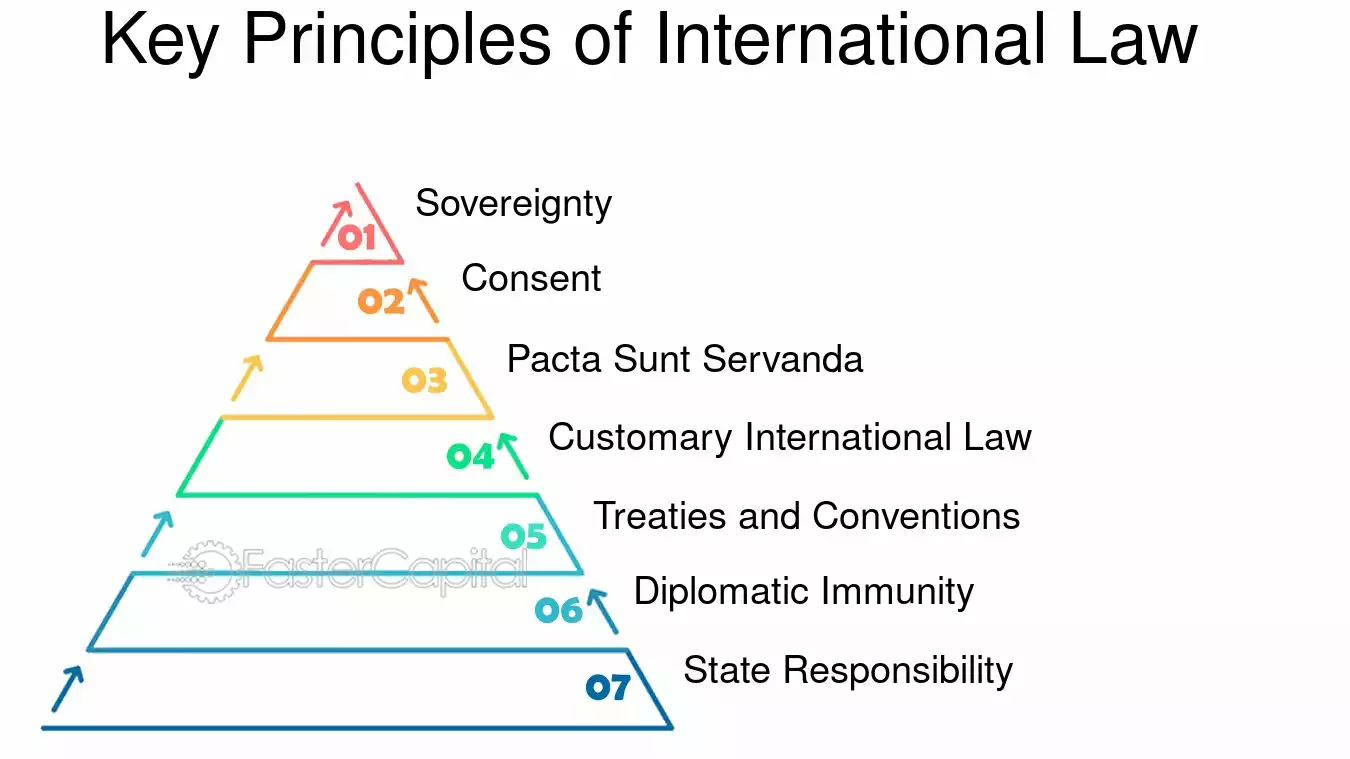Legal Studies Y10 T4
1/22
There's no tags or description
Looks like no tags are added yet.
Name | Mastery | Learn | Test | Matching | Spaced | Call with Kai |
|---|
No analytics yet
Send a link to your students to track their progress
23 Terms
What is Private International Law?
Deals with cases within particular legal systems that involve foreign elements. Revolves around issues which country’s law applies, or which country should hear the case. For example, contracts between different countries.
What is Public International Law? (International Law)
Covers relations between states, regulates international institutions
What is Supranational Law?
Transcends individual nations laws, binding them within certain regions. Promotes integration and cooperation beyond national boundaries.
Why is International Law important?
It ensures peace, covering human rights, international crime, refugees, conduct of wars etc. Regulates the global commons.
What are the 5 sources of International War?
Treaties, customary international law, general principles of law, judicial decisions, and scholarly writings.
What are examples of Institutions of International Law?
United Nations UN, International Criminal Court ICC, World Trade Organisation WTO, International Monetary Fund IMF + World Bank, and Regional Bodies. The founding members decide the powers of each body, they do not all have a legal personality, so do not NEED to be obeyed.
What is Australia’s importance in the UN?
Founding member in 1945, advocate for international law. They provide resources for UN peacekeeping missions
What are the 7 Key Principles of International Law?
Sovereignty, Consent, Pacta Sunt Servanda, Customary International Law, Treaties and Conventions, Diplomatic Immunity, State Responsibility.

What is the purpose of the UN?
To promote international cooperation, maintain peace and security, and help the development of international law.
What is the purpose of the ICC?
Prosecute individuals for war crimes, genocides, crimes against humanity.
What is the purpose of the WTO?
Handles trade disputes.
What is the purpose of the IMF (International Monetary Fund) and World Bank?
Manage global finance and devlopment.
What is the purpose of regional bodies e.g. the ASEAN
Regional bodies are organisations formed by neighbouring countries to promote cooperation, stability, and development within a specific geographic region.
What is ratification?
In international law, after signing a treaty (agree in principle) a state must ratify the treaty to make it binding, which means incorporate the treaty into the country’s domestic laws.
What are characteristics of a sovereign state?
One centralised government, have sovereignty over a specific geographic area, have a permanent population and can enter diplomatic relations with other countries.
What is a refugee?
A person who had fled their home because of persecution, disaster and is legally recognised as a refugee by the country they’ve fled to.
What is an asylum seeker?
A person who has fled their home due to conflicts and disaster but has not been recognised as a refugee.
What is a migrant?
People who have left their home country by choice, and can return without fear os prosecution or dangers.
What is an internally displaced person?
Someone who has fled their home for the same reasons as a refugee, but has not crossed international border and remains in their country.
What is offshore asylum seeker protection?
Fulfils the ratified obligations that Australia has agreed to, but has been claimed to go against the ‘the spirit of the Refugee Convention 1957’.
What is onshore asylum seeker protection?
Asylum seekers that have arrived in Australia, fulfils our international obligations.
What is mandatory detention?
A policy that requires all unauthorized arrivals in Australia to be held in detention until their immigration status is resolved.
What is non-refoulement?
A legal principle that prohibits countries from returning asylum seekers to a place where they could face persecution or serious harm.